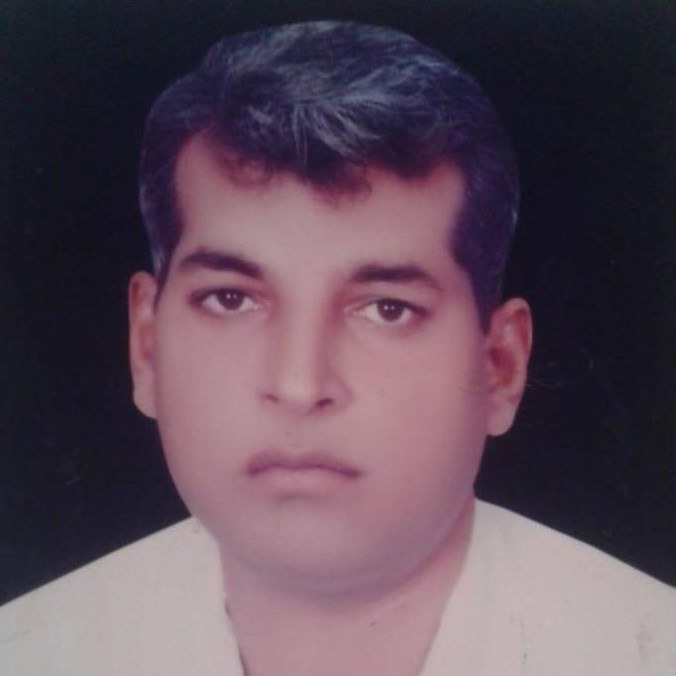Arrest and background
Pakistani pastor Zafar Bhatti has been in Rawalpindi’s Adyala Central Jail since July 2012, when he was charged with sending blasphemous text messages. On May 3, 2017, Zafar was sentenced to life imprisonment for blasphemy, a charge he denies. In December 2021 this was changed to the Death Sentence. The mobile phone in question was not registered to his name.
Before his arrest, Zafar worked selling medicines door-to-door and regularly during his sales presentation he would take the opportunity to read the Bible and pray with families in homes he visited. He founded and led a small NGO called Jesus World Mission to assist the poor.
In July 2012, a local Islamic leader filed a complaint at New Town police station, Rawalpindi, saying he had been sent messages from an unregistered number insulting the mother of Islam’s Prophet Mohammed. He threatened that his organisation would take matters into its own hands if an investigation for blasphemy were not opened under Section 295-C of the Penal Code – even though insulting the Prophet’s mother falls under Section 295-A. (Section 295-C carries the death penalty; Section 295-A does not.)
A First Information Report (FIR) was lodged against an ‘unknown person’, but the police later arrested Zafar, charging him under section 295-C. They tortured him to extract a confession, but he insisted on his innocence. Several reports proved that the SIM was not registered to Zafar but was in fact registered to Ghazala Khan. In November 2012 Ghazala Khan, whose national identity card details had been used to register the SIM in question, was arrested and charged with blasphemy. At her trial in April 2013, Justice Khalid Mehmood of the Lahore High Court refused to pass judgement against her and instead tried to convince the petitioner to forgive her. Ghazala said she was innocent and did not want forgiveness but to be freed on merit. The judge showed leniency and granted her bail. She died in November 2016 from Hepatitis C, aged 39.
When the courts eventually brought Zafar to trial in 2017, they conducted proceedings inside the prison because of security threats. The court had been petitioned to move Zafar’s case to Lahore in view of the risk to his life from Islamic extremists but the petition was denied. Following the trial, Additional District and Session Judge Mohammad Yar Gondal sentenced him to life in prison. Section 295-C mandates the death sentence and this was later applied in December 2021.
In prison, Zafar has experienced pressure from Muslim prisoners to convert to Islam, and has been beaten several times. In March 2013, someone poisoned his food, which caused bleeding from the nose and mouth and left him in a critical condition for days. On September 25, 2014, mistaken rumours circulated that Zafar had been shot dead in his prison cell. In fact it was not actually him who been attacked, but the prisoner in an adjacent cell, British Muslim Muhammad Asghar (aged 71), who had been sentenced to death for blasphemy. Ashgar, who was arrested in 2010, had a history of mental illness.
Police officer Muhammad Yousaf, who had been deployed to protect Muhammad Asghar, shot him in the chest. The bullet broke two of his ribs and punctured his right lung, but he recovered in hospital. Prison guards arrested Yousaf, who apparently had planned to kill all prison inmates accused of blasphemy.
Following numerous attempts to kill Zafar in prison his family are very concerned for his safety.
When a husband and father is imprisoned it causes significant pressure for the family. Reports indicate that Zafar’s wife, Nawab, has struggled to make ends meet since her husband’s arrest and was forced to send her younger children to live with their grandparents as she could not afford to keep them. Nawab’s older daughters were put in arranged marriages at very young ages for financial reasons.
As with other people accused of blasphemy in Pakistan, Zafar may remain in prison for a considerable length of time before his case is finally dealt with. The courts are often reluctant to tackle the underlying injustice and abuse of the blasphemy laws for fear of reprisal by Muslim extremists and many times postpone hearings indefinitely, leaving the accused languishing in a prison cell.
This happened again on October 10, 2019 when a High Court ruling on the case was expected. The sitting was adjourned without any decision being taken and no new date was given to hear the appeal.
In December 2021 the life imprisonment tariff on Zafar was increased to the death sentence.
Release International partners visited Zafar in prison, in February 2024, and reported a growing concern for his health. He is diabetic, which affects his diet, and the condition of his heart is poor. His wife Nawab is experiencing vision loss and hearing difficulties. Plans are in place to provide her with glasses and a hearing aid.
Last updated: March 2024
